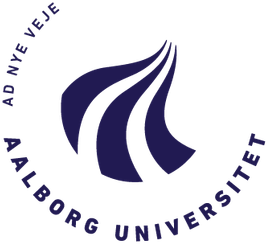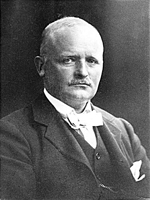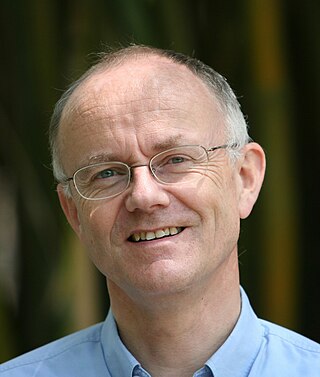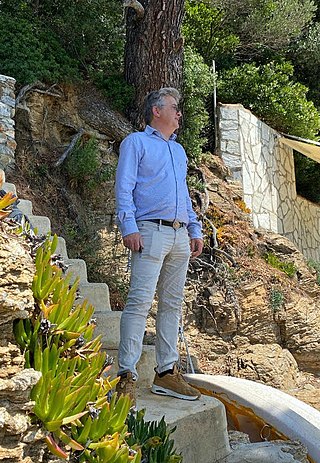Related Research Articles

Transport in Denmark is developed and modern. The motorway network covers 1,111 km while the railway network totals 2,667 km of operational track. The Great Belt Fixed Link connecting the islands of Zealand and Funen and the New Little Belt Bridge connecting Funen and Jutland greatly improved the traffic flow across the country on both motorways and rail. The two largest airports of Copenhagen and Billund provide a variety of domestic and international connections, while ferries provide services to the Faroe Islands, Greenland, Iceland, Germany, Sweden, and Norway, as well as domestic routes servicing most Danish islands.

A business model describes how an organization creates, delivers, and captures value, in economic, social, cultural or other contexts. The process of business model construction and modification is also called business model innovation and forms a part of business strategy.
Higher education in Denmark is offered by a range of universities, university colleges, business academies and specialised institutions. The national higher education system is in accordance with the Bologna Process, with bachelor's degrees, master's degrees and doctoral degrees. The majority of higher education institutions are the responsibility of the Ministry of Higher Education and Science; however, some higher education institutions within the arts are the responsibility of the Ministry of Culture.

Aalborg University (AAU) is a Danish public university with campuses in Aalborg, Esbjerg, and Copenhagen founded in 1974. The university awards bachelor's degrees, master's degrees, and PhD degrees in a wide variety of subjects within humanities, social sciences, information technology, design, engineering, exact sciences, and medicine.

Aarhus University is a public research university with its main campus located in Aarhus, Denmark. It is the second largest and second oldest university in Denmark. The university is part of the Coimbra Group, the Guild, and Utrecht Network of European universities and is a member of the European University Association.

Martin Professional is a Danish manufacturer and distributor of stage and architectural lighting and effects fixtures. It is owned by Harman International Industries, a subsidiary of Samsung Electronics. The company is based in Aarhus, Denmark.

Hack Kampmann was a Danish architect, Royal Inspector of Listed State Buildings in Jutland and professor at the architecture department of the Royal Danish Academy of Fine Arts. Marselisborg Palace in Aarhus, built between 1899 and 1902, is among his best known works.

Lars Kolind is a Danish businessman. Kolind holds an M.Sc. in Mathematics from Aarhus University from 1972 and a B.Comm. from the Copenhagen Business School from 1977. He is adjunct professor of leadership and strategy at Aarhus University Business School since 2000. He serves as Detao Master of Leadership and Strategy since 2012.

Timothy Jacob Jensen is a Danish industrial designer. He was best known as CEO and Chief Designer of Jacob Jensen Design from 1990 to 2018. Jensen was also the founder of the Scandinavian brand JACOB JENSEN. He has created numerous well-known designs for timepieces, jewellery, communication equipment, houseware, furniture and kitchens. He has also been prominent within the automotive design, branding and value clarification fields.
Toke Reichstein is a Danish economist and Professor at Copenhagen Business School. He is best known for his work on "Investigating the sources of process innovation among UK manufacturing firms."

Århus Stiftstidende is a Danish newspaper based in Aarhus, Denmark, focusing largely on local topics.

The first high-speed railway in Denmark was the Copenhagen–Ringsted Line, completed in late 2018 and opened in 2019. Further high-speed lines are currently under planning.
The Aarhus University School of Business and Social Sciences is one of four faculties of Aarhus University in Denmark. The school consists of seven departments: Economics and Business Economics, Management, Political Science, Law, Business Communication, Psychology and Behavioural Sciences and Department of Business Development and Technology. The main campus is located in Aarhus.
Alan Pilkington is a British engineer and researcher known for his work in technology management, operations management, Manufacturing strategy and enterprise engineering. He has been a professor at the Copenhagen Business School, Hult International Business School and S P Jain School of Global Management. He is currently Professor of Technology Management at Westminster Business School in London. He is past chair of the IEEE Technology Management Council for the UK and Republic of Ireland joint chapter on engineering management.
Rick L. Edgeman is an American statistician and quality professional, and Professor of Sustainability & Performance at AU Herning and in the Interdisciplinary Center for Organizational Architecture, at Aarhus University, School of Business and Social Sciences. Concurrently, he is President's Distinguished Scholar, Professor & Chair of Management, and Center for Entrepreneurship Director in the Robbins College of Business & Entrepreneurship at Fort Hays State University in Hays, Kansas. He primarily known for his work on Quality Management, Performance Management, and within the recent years Sustainable Enterprise Excellence (SEE) and is an Academician of the International Academy of Quality.
Value Delivery Modeling Language (VDML) is a standard modeling language for analysis and design of the operation of an enterprise with particular focus on the creation and exchange of value.

Lars Arendt-Nielsen is a professor at Aalborg University specialising in translational pain research and bio-markers. Lars Arendt-Nielsen's research is highly recognised internationally, and in addition to his university work he has established several businesses.
Serden Özcan is a professor and holder of the Otto Beisheim Endowed Chair of Innovation and Corporate Transformation at the WHU – Otto Beisheim School of Management in Vallendar near Koblenz. During the 2017/2018 academic year the Chair of Innovation and Corporate Transformation moved from Vallendar to Düsseldorf.

Quentin Durward was a paddle-wheel steamer, built in the United Kingdom in 1823. The ship was bought in 1827 by a Danish businessman and was employed on a route between Copenhagen and ports in Jutland and Funen, with the name Dania. She later served on the route between Aarhus and Kalundborg. The paddle-wheeler was broken up in 1841.
Christian S. Jensen is a Danish computer scientist who is a professor at Aalborg University.
References
- ↑ Lambert, Susan C., and Robyn A. Davidson. "Applications of the business model in studies of enterprise success, innovation and classification: An analysis of empirical research from 1996 to 2010." European Management Journal 31.6 (2013): 668-681.
- ↑ Frankenberger, Karolin, Tobias Weiblen, and Oliver Gassmann. "The antecedents of open business models: an exploratory study of incumbent firms Archived 2015-04-02 at the Wayback Machine " R&D Management 44.2 (2014): 173-188.
- 1 2 Peter Lindgren, Professor: CV at pure.au.dk. Accessed 16-03-2015.
- ↑ OMG, Value Delivery Modeling Language (VDML), Doc. No. bmi/2011-05-11 (2011)